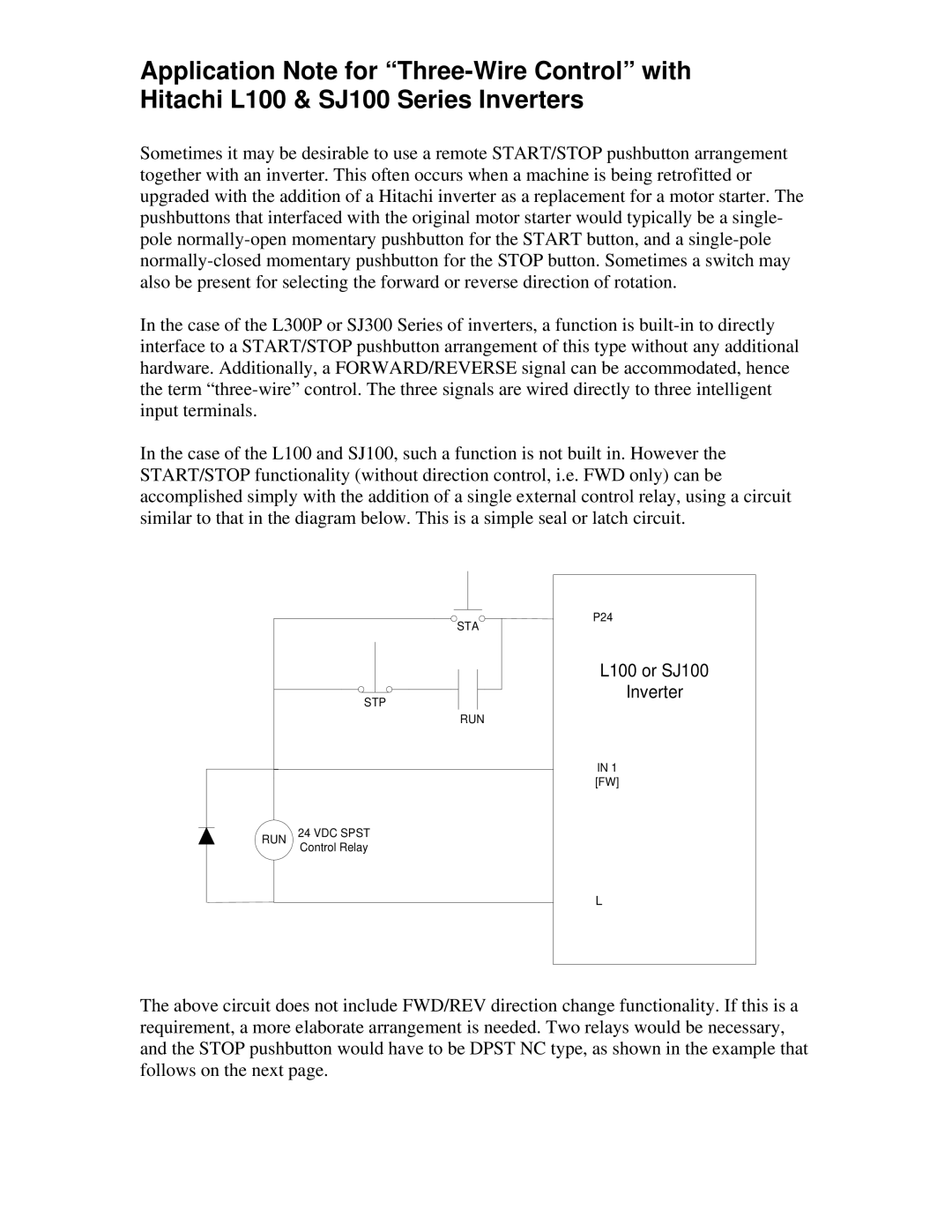AN021003-1 specifications
The Hitachi AN021003-1 is a sophisticated and robust component designed to meet the diverse needs of modern industrial applications. As part of Hitachi's renowned lineup of industrial automation and control products, the AN021003-1 has been engineered to deliver high performance, reliability, and versatility.One of the standout features of the AN021003-1 is its high precision in measurement and control. This component is equipped with advanced sensors that provide accurate real-time data, enabling enhanced monitoring and management of industrial processes. The precision offered by the AN021003-1 makes it particularly valuable in applications requiring meticulous control, such as manufacturing, energy management, and logistics.
Another key characteristic of the AN021003-1 is its scalability. This product is designed to seamlessly integrate into existing systems, allowing for gradual upgrades and expansions of industrial operations without the need for complete overhauls. The ability to work effectively within various configurations makes it an ideal choice for businesses looking to modernize while minimizing disruption.
In terms of technology, the AN021003-1 utilizes cutting-edge communication protocols, ensuring compatibility with a wide range of devices and systems. This flexibility facilitates efficient data transfer and interoperability with other industrial components, promoting a cohesive operational environment. Furthermore, the component supports various communication standards, which enhances its adaptability to different industrial setups.
The AN021003-1 also boasts a robust build, optimizing it for harsh industrial environments. Constructed with durable materials, it is resistant to dust, moisture, and extreme temperatures. Manufacturers can rely on its longevity, reducing maintenance costs and downtime associated with equipment failures.
Additionally, safety and security are prioritized in the AN021003-1's design. Advanced features help safeguard against potential failures and ensure data integrity, making it a reliable choice for critical applications.
In summary, the Hitachi AN021003-1 embodies high precision, scalability, advanced communication technologies, durability, and safety. These attributes make it an indispensable tool in optimizing industrial processes, enhancing productivity, and supporting the goals of modern businesses. As industries continue to evolve, the AN021003-1 will remain a key player in facilitating innovation and efficiency.

